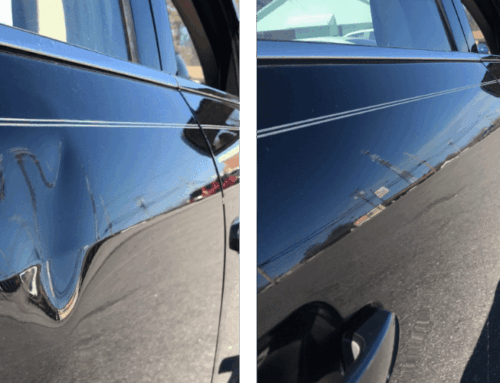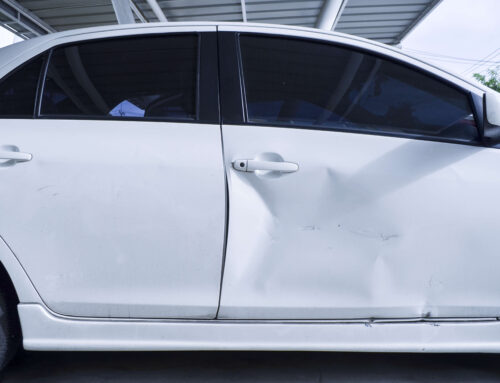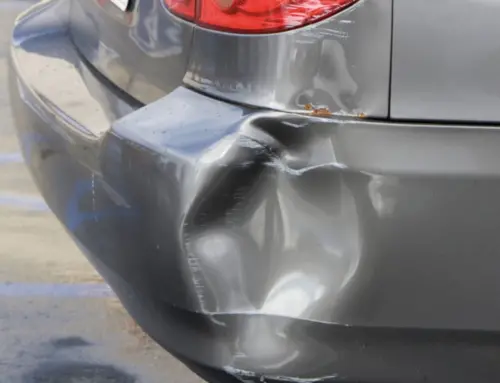Getting a dent in your car is frustrating, but did you know fixing it might not be as simple as heading to the repair shop? In some cases, you may need permission before tackling that unsightly ding. Whether it’s a leased vehicle, a car under warranty, or one with insurance restrictions, there are situations where the legal side of repairs comes into play. Skipping the necessary approvals could leave you with more than just a dent to worry about—it might land you in hot water with fines, voided agreements, or unexpected costs.
What legal considerations should you be aware of before fixing a car dent?
Before repairing a car dent, it’s important to be aware of legal considerations to avoid penalties, disputes, or additional costs. Here are key factors to keep in mind:
- Lease Agreement Terms: Check the lease agreement for repair restrictions if the vehicle is leased. Unauthorized fixes may violate the contract and result in penalties or loss of the security deposit.
- Lienholder Permissions: For financed vehicles, the lienholder may require pre-approval for repairs to ensure the vehicle retains its value as collateral.
- Insurance Approval: If the repair is part of an insurance claim, get authorization from your insurer to ensure the chosen repair method, such as paintless dent repair (PDR), is covered.
- Repair Shop Licensing: Ensure the repair shop or technician is licensed and certified, as some jurisdictions require professional credentials for auto repairs.
- Environmental Compliance: Mobile repair services must comply with local environmental laws, such as waste disposal regulations, to avoid legal issues.
- Warranty Impact: Check whether the repair might void any existing warranties on the vehicle, especially for manufacturer-provided coverage.
- Zoning Laws: If considering mobile or at-home repairs, ensure compliance with local zoning regulations, as some areas may prohibit repairs outside of licensed facilities.
Awareness of these legal factors helps ensure a smooth and compliant dent repair process.
When is permission required to perform dent removal on a vehicle?
Permission may be required before dent removal on a vehicle in certain circumstances. Here are the key scenarios:
- Leased Vehicles: Repairs must align with the lease agreement if your vehicle is leased. Unauthorized dent removal or non-approved methods may result in penalties or forfeiture of your deposit.
- Financed Vehicles: When financed, the lienholder may require notification or approval for repairs to maintain the vehicle’s value as collateral.
- Insurance Claims: Prior authorization is often necessary for dent removal covered by an insurance claim. Insurers may require you to use specific repair shops or methods, such as paintless dent repair (PDR), to meet their policy guidelines.
- Warranty Considerations: Certain repair methods might void coverage if your vehicle is under a manufacturer’s or extended warranty. It’s essential to confirm whether the repair complies with warranty terms.
- Mobile Repairs: Performing dent removal at home or through mobile services may require adherence to local zoning regulations and environmental laws.
- Rental Cars: If the vehicle is rented, the rental company must approve all repairs to avoid extra charges or contract violations.
Securing the necessary permissions ensures compliance with agreements, insurance, and legal requirements, preventing potential disputes or additional costs.
Are there specific laws governing dent repair for leased or financed cars?
Yes, leased or financed cars are subject to specific rules and regulations regarding dent repair, often outlined in agreements with leasing companies or lienholders. Here are key considerations:
- Lease Agreement Terms: Lease contracts typically require vehicles to be returned in “original” or “acceptable” condition. Unauthorized repairs, including dent removal, could violate the lease and incur penalties or additional charges.
- Lienholder Approval: When a vehicle is financed, the lienholder technically owns the car until the loan is paid off. However, repairs, especially those affecting the vehicle’s value, may require prior approval to protect their investment.
- Insurance Policies: Insurance companies may have specific requirements for dent repairs on leased or financed cars, such as using approved repair shops or methods like paintless dent repair (PDR).
- Warranty Impact: Dent repairs on leased or financed vehicles must not void the manufacturer’s or extended warranty, as this could lead to disputes with the lessor or lienholder.
- Compliance with Local Laws: Repairs must comply with environmental and safety regulations, particularly for mobile or at-home dent removal services.
Car owners should review their lease or loan agreements and consult relevant parties before initiating dent repairs to avoid financial and legal complications.
How can you ensure compliance with regulations when repairing a car dent?
To avoid legal complications and ensure compliance when repairing a car dent, follow these steps:
- Review Lease or Loan Agreements: If the car is leased or financed, carefully read the agreement to understand any restrictions or requirements regarding repairs. If needed, seek approval from the leasing company or lienholder.
- Obtain Insurance Authorization: For repairs covered under an insurance claim, get prior approval to ensure the repair method, such as paintless dent repair (PDR), aligns with the policy guidelines.
- Use Licensed Repair Shops: Choose a repair shop that is licensed, certified, and adheres to local laws and industry standards. This ensures the work meets legal and quality requirements.
- Check Environmental Regulations: If using a mobile service or performing repairs at home, verify compliance with local environmental laws, such as proper waste disposal or adherence to water usage restrictions.
- Consult Warranty Terms: Ensure the repair does not void any existing warranties on the vehicle, especially manufacturer or extended warranties.
- Verify Zoning Compliance: Confirm that the repair location, especially for mobile services, complies with zoning and residential area regulations.
- Document Repairs: Keep records of repair authorization, invoices, and communications with involved parties to provide proof of compliance if needed.
Car owners can ensure their dent repair process fully complies with relevant regulations and agreements by following these steps.
Know Your Rights Before Fixing Your Car Dents!
At Piedmont Dent Repair, dent removal can sometimes involve legal considerations, especially for leased or financed vehicles. Knowing your rights and obligations is essential to avoid penalties, voided warranties, or insurance complications. Our team is here to guide you through the process, ensuring compliance with lease agreements, lienholder requirements, and insurance policies.
Whether you need paintless dent repair (PDR) or other solutions, we provide expert advice and services that protect your vehicle’s value and integrity. Don’t risk unnecessary hassles—consult with Piedmont Dent Repair today and get your dents fixed correctly, stress-free, and legally sound!





